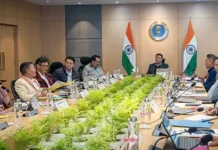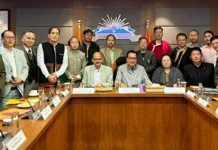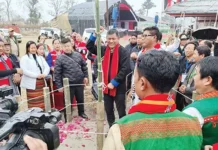NEW DELHI, Jul 11: The Indian Journalists Union (IJU) has expressed shock over the Jammu & Kashmir administration’s decision to extend the restrictions on internet speed (4G) till 29 July and the union home ministry’s non-compliance with the Supreme Court order to constitute a special committee to review these restrictions.
In a press statement, the IJU said it hopes that the apex court would list a contempt petition filed against non-compliance of its orders at its earliest convenience.
On Wednesday, the J&K home secretary sought to justify the continuation of restrictions on high-speed internet, stating that “high-speed net is likely to be used for uploading/downloading/circulation of provocative content on the social media” and would aid in recruitment of “gullible youth into the terrorist ranks,” among other things.
The home secretary also claimed that 2G speed had not impeded the government’s efforts in Covid-19 control, education, and business activities.
The SC had on 11 May ordered that a special committee comprising the home ministry secretary and others “look into the prevailing circumstances and immediately determine the necessity of the continuation of the restrictions” in J&K. This was in response to a petition filed by the Foundation of Media Professionals (FMP), seeking restoration of 4G speed internet services, against the backdrop of the pandemic.
The FMP, according to Livelaw, filed a contempt petition on 9 June, stating that despite the court’s direction, no such committee seems to have been constituted, and no order published by it, reviewing J&K administration’s orders.
In a statement, IJU president Geetartha Pathak and secretary-general Sabina Inderjit said “the J&K administration’s reasoning of not extending 4G services is untenable and reveals its intent on clamping down on freedoms in a digital society.
“It has also recently announced a new media policy which is draconian, giving the administration powers to decide what’s ‘fake’, ‘unethical’ or ‘antinational’ news and a means to silence criticism.”
The IJU urged the home ministry to set up the special committee “without any further delay, and put a stop to decisions being taken on an ad hoc basis.”





